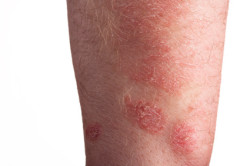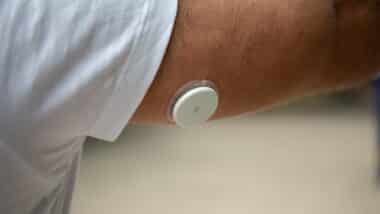Diflucan (fluconazole) is intended to assist in the treatment and prevention of fungal infections. More specifically, it is an anti-fungal antibiotic often used to treat yeast infections of the vagina, mouth, throat, esophagus and other organs.
Amidst growing concerns over the safety of Diflucan, the antibiotic may be responsible for a rare and potentially fatal skin disease known as Stevens Johnson syndrome.
Overview of Diflucan
Diflucan
is a product of the pharmaceutical goliath Pfizer. After gaining the approval of the U.S. Food and Drug Administration (FDA), Diflucan quickly became a significant component in the fight against numerous variations of fungal infection. It served as the first in a new subclass of synthetic triazole anti-fungal agents that utilize fluconazole as an active ingredient.
It is primarily used to treat infections caused by fungus, which can invade the mouth, throat, esophagus, lungs, bladder, genital area and blood. The FDA also approved use of the drug to prevent fungal infections in people with weakened immune systems due to cancer treatment, bone marrow transplant, or diseases like AIDS.
Specifically, Diflucan is used to treat the following conditions:
- Yeast infections of the vagina, mouth, throat esophagus and other organs.
- Meningitis caused by a certain type of fungus.
- Prevent yeast infections in patients who are likely to become infected because they are being treated with chemotherapy or radiation therapy before bone marrow transplant.
Diflucan and Stevens Johnson Syndrome
Stevens Johnson syndrome (SJS) is a life-threatening, and usually drug-induced, skin disease. SJS is known as an immune-complex-mediated hypersensitivity reaction, meaning an allergic reaction commonly caused by the body’s adverse response to certain drugs, such as Diflucan.
SJS causes the skin and mucous membranes to become painfully inflamed. In its more serious form (toxic epidermal necrolysis or TEN), the disease is characterized by epidermal erosion or detachment – meaning the infected patient’s skin starts to peel off in large sheets, leaving large raw areas of open flesh.
Often, the affected area looks like an extensive burn. The loss of skin can cause important body fluids and minerals to leak from the affected area and the exposed open wounds to develop bacterial and fungal infections.
Stevens Johnson Syndrome and Toxic Epidermal Necrolysis can result in permanent scarring, serious infections, and even death.
Symptoms of Diflucan SJS and TEN include:
- Fevers
- Pain and discomfort
- Rashes that spread quickly (especially to the eyes, mouth, and genitals)
- Skin lesions
- Epidermal erosion or peeling without blistering
Diflucan SJS Lawsuits
Stevens Johnson syndrome is a side effect linked to Diflucan, a prescription drug that helps to treat fungal infections, Other serious Diflucan side effects include toxic epidermal necrolysis.
If you or your loved one has been significantly harmed or injured by Diflucan, an experienced SJS injury attorney may be able to help you obtain compensation for your pain and suffering.
Do YOU have a legal claim? Fill out the form on this page now for a free, immediate, and confidential case evaluation. The Stevens Johnson Syndrome attorneys who work with Top Class Actions will contact you if you qualify to let you know if an individual lawsuit or class action lawsuit is best for you. [In general, SJS lawsuits are filed individually by each plaintiff and are not class actions.] Hurry — statutes of limitations may apply.
ATTORNEY ADVERTISING
Top Class Actions is a Proud Member of the American Bar Association
LEGAL INFORMATION IS NOT LEGAL ADVICE
Top Class Actions Legal Statement
©2008 – 2025 Top Class Actions® LLC
Various Trademarks held by their respective owners
This website is not intended for viewing or usage by European Union citizens.
Get Help – It’s Free
Help for Victims of Stevens Johnson Syndrome
If you or a loved one were diagnosed with Stevens Johnson Syndrome (SJS) or toxic epidermal necrolysis (TEN) after taking a prescribed or over-the-counter medication, you may be eligible to take legal action against the drug’s manufacturer. Filing an SJS lawsuit or class action lawsuit may help you obtain compensation for medical bills, pain and suffering, and other damages. Obtain a free and confidential review of your case by filling out the form below.
An attorney will contact you if you qualify to discuss the details of your potential case at no charge to you.
Oops! We could not locate your form.














I was prescribed Diflucan after using antibiotics to cure my yeast infection. After 10 hours of taking the pill, I had a quarter sized red lesion on my right arm, in the same spot, everytime.